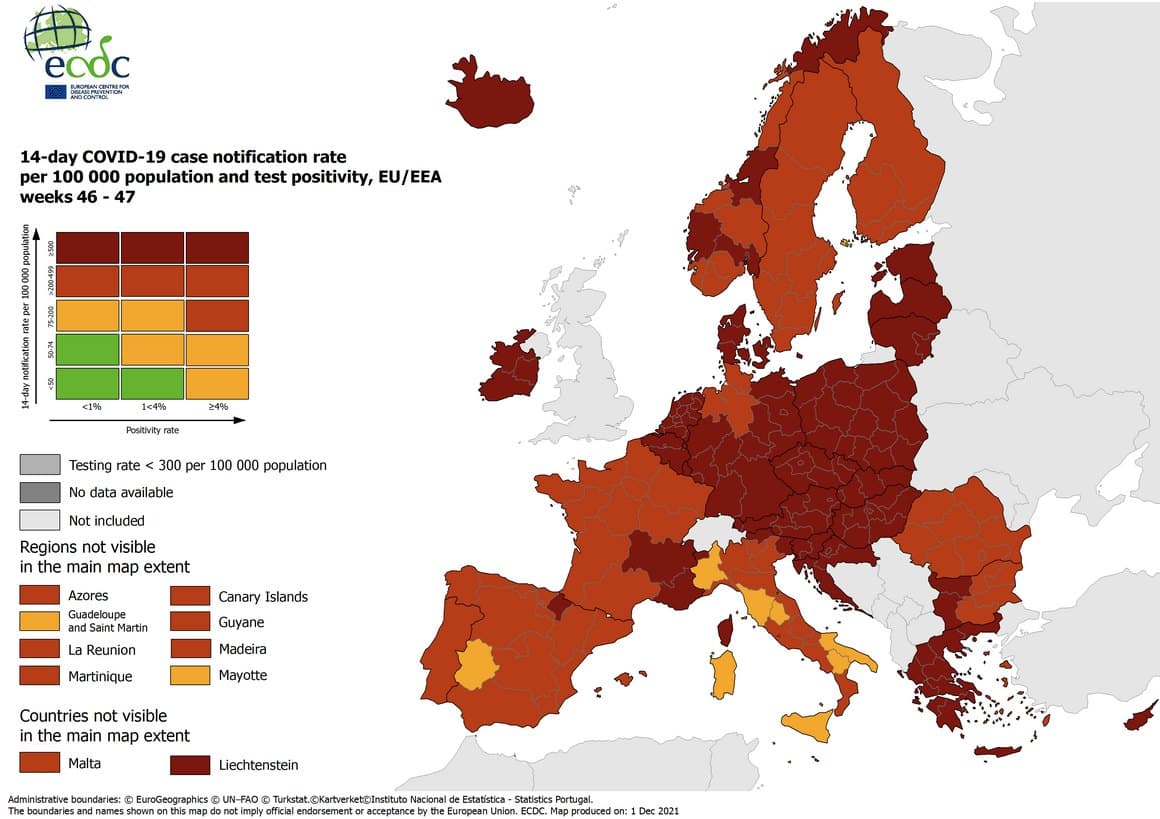The detection of the new COVID-19 Omicron variant has caused turmoil within the European Union as the Member States decided to tighten their travel rules immediately after a new Coronavirus variant started circulating in the European continent.
The majority of the EU countries announced stringent rules against arrivals from the southern African countries that have been affected by the Omicron variant.
However, even though the movement from these areas has been restricted, Omicron infection cases have been already identified within the EU/Schengen Area countries. This happened because most travellers have been able to travel freely since the existence of the new variant was unknown until last week.
In order to prevent the further spread of the Omicron, the EU Commission has suggested that the Member States review essential travel restrictions consistently while adding that a joint strategy would halt the spread of the new variant within the EU.
Despite the circulation of the new variant, the Delta variant has also been spreading rapidly, especially among unvaccinated and unrecovered travellers, as more people are frequenting indoor areas due to the cold weather.

The latest update of maps published today, on December 2, by the European Centre for Disease Prevention and Control (ECDC) has shown that all EU countries have identified increased infection rates during the last seven days, SchengenVisaInfo.com reports.
Therefore, ECDC has advised that everyone, in particular those who haven’t been vaccinated or recovered from the virus, should refrain from taking any non-essential trips.
Based on the data provided by Europe’s Health Agency, the majority of EU/Schengen Area countries – Belgium, Austria, Bulgaria, Czechia, Croatia, Ireland, Estonia, Poland, Iceland, Latvia, the Netherlands, Lithuania, Hungary, Greece, Liechtenstein, Slovakia, and Slovenia – have registered high infection rates and are currently placed on the dark red list.
All these countries have identified over 500 COVID-19 infection cases per 100,000 inhabitants and had a test positivity rate of more than four per cent during the last 14 days.
Taking into account these figures and with the infection rates increasing each day, ECDC has advised that everyone be extra cautious and carry the necessary documents with them at all times if they have to take a trip.
In support of the free movement, the European Tourism Manifesto suggested that the Member States establish a coordinated approach and shift to a traveller-based approach.
In addition, the same has suggested that those who hold a valid EU Digital COVID-19 Certificate should not be subject to additional travel rules.
Source: https://www.schengenvisainfo.com/





